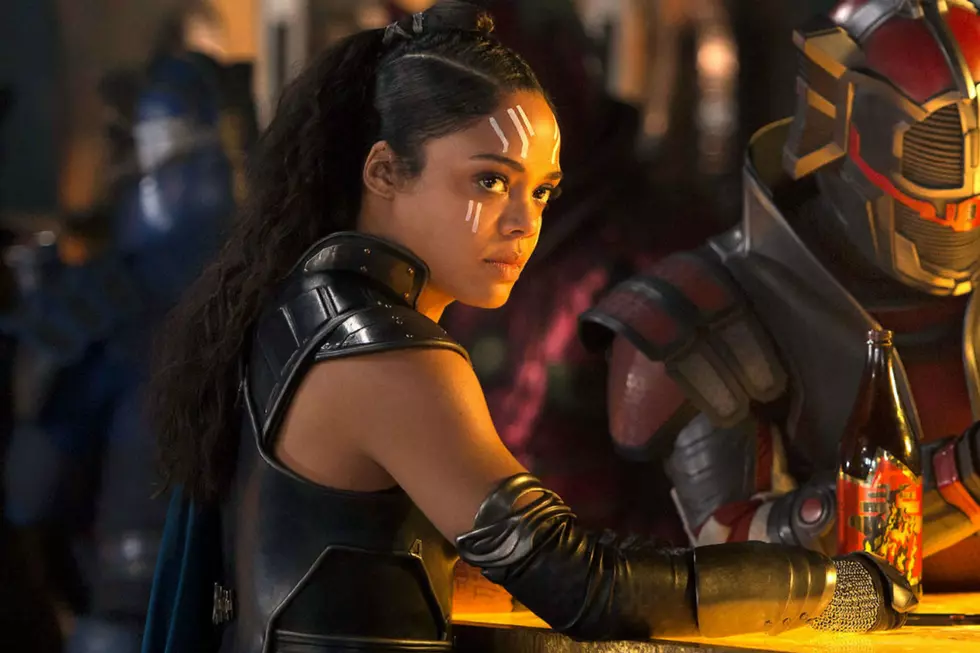An Unfortunate History of Cisgender Actors Playing Transgender Characters
This video is one part of ScreenCrush’s new franchise Our Hollywood, a month-long series about the past, present and future of transgender visibility in film and television. Stay tuned throughout June’s LGBTQ Pride Month for in-depth profiles with photos shot by Amos Mac, essays and exclusive videos.
Eddie Redmayne, Jared Leto, Hilary Swank, Jeffrey Tambor. What do all these actors have in common? They’ve all won awards for their performances as transgender characters. But most notably, they’re all cisgender1 actors who are known for their trans roles.
You’ve likely seen the backlash when a cis person is cast in a trans role. It happened most recently with the Mark Ruffalo-produced indie drama Anything, which stars Matt Bomer (a cis man) playing a trans woman. This casting trend, and the history of trans actors losing roles about their community to cis actors, has been going on for nearly 40 years when Elizabeth Coffey Williams lost the part of Leon in Dog Day Afternoon to Chris Sarandon.
As the trans community has gained more visibility in the media, many trans actors, filmmakers and activists have spoken out about the problems of cis actors playing trans characters. The issue isn’t just that these casting decisions have stripped trans actors of opportunities, but also how the mere image of a cis man playing a trans woman can incite discrimination and violence against the trans community in real life. As Nick Adams of GLAAD wrote in an op-ed for The Hollywood Reporter last year, when cis male actors play trans women, “viewers receive two strong and wrong messages: 1. that being transgender is an act, a performance, just a matter of playing dress-up; and 2. that underneath all that artifice, a transgender woman really is a man.” Adams went on to cite specific examples of how those messages can lead to violence outside the movie theater:
It’s what prompts lawmakers in states like North Carolina to legislate that a transgender woman must use the men’s restroom, humiliating her and putting her in harm’s way. It’s what motivated James Dixon to murder Islan Nettles as she walked down the street, minding her own business. […] Since Islan Nettles was murdered in August 2013, the same year Orange Is the New Black premiered, over 50 transgender women have been murdered in the United States. Those are just the murders we know about.
In the above video essay, we chronicle Hollywood’s long history of casting cis actors in trans roles, dating back to 1970 with Raquel Welch in Myra Breckinridge and up to today. We unpack the many reasons it’s problematic for cis actors to play trans people and why that should change. Though the industry has begun to make some progress, from Tangerine and Orange Is the New Black to Transparent‘s diverse cast and crew, there’s still much further to go.
It’s worth noting that not everyone has the same perspective on the cis actor debate – Drunk History actor Alexandra Grey told us that she didn’t mind it, but pushed for more opportunities for trans actors, while Elliot Fletcher of Shameless has one piece of advice for the next cis actor to get a trans role: “Don’t.” And Alexandra Billings, who lost the lead in Transamerica to Felicity Huffman, who then earned an Oscar nomination for her performance, told us the one thing a trans actor can bring to a trans role that a cis actor can’t: “Life experience.” As Billings explained, “I just am trans, I don’t have to be trans.”
Casting isn’t the only issue with trans representation in Hollywood. After you watch the video essay above, check out ScreenCrush and GLAAD’s video featuring nine trans actors calling on Hollywood to not only cast them in bigger and better roles, but to work harder to portray trans lives more authentically on screen, from the writing to the identities of the crew members behind the camera. Learn more about Hollywood’s history of trans representation in ScreenCrush’s Our Hollywood series, including interviews with Alexandra Billings, Elliot Fletcher, Alexandra Grey, Trace Lysette (Transparent), Rain Valdez (Lopez), D’Lo (Looking), Jazzmun (When We Rise), and Ian Harvie (Transparent).
1Cis or cisgender: A person whose gender identity matches the biological sex they were assigned at birth.
More From ScreenCrush









